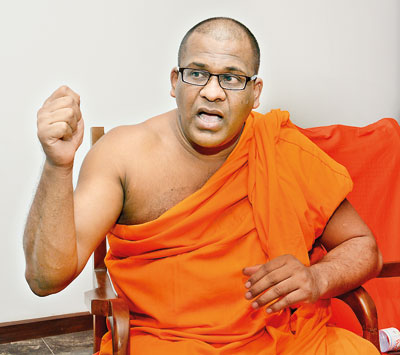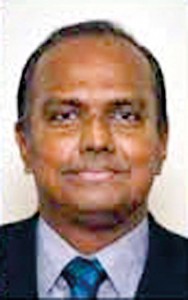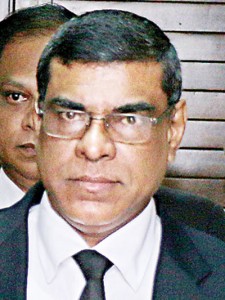News
Courts should be free from intimidation and undue influence: Court of Appeal
Delivering its judgment on the Contempt of Court case against Bodu Bala Sena General Secretary Galagodaaththe Gnanasara Thera, the Court of Appeal said it was the fervent duty of the Court to “ensure that all courts and tribunal of this country are free from all forms of intimidation and undue influence to enable their smooth functioning towards administering justice.”

Galagodaaththe Gnanasara Thera
On Wednesday, the Court found the monk guilty on all four counts and sentenced him to 19 years rigorous imprisonment. As the sentences are to run concurrently, the monk will have to stay only six years in prison. One of the charges against the monk was that he attempted to intimidate the Homagama Magistrate and a State Counsel on January 25, 2016 when the court took up the Pradeep Ekneligoda disappearance case.
The monk, in defence, claimed that he had no intention to bring the court, the judge or the counsel into disrepute.
The bench comprised Court of Appeal President P. Padman Surasena and Judge Shiran Gooneratne.
Considering all the evidence in its totality, the Court of Appeal held that the monk had made the utterances (referred to in the charges) deliberately, of his own volition, without any permission either expressed or implied from the Magistrate. “There is overwhelming evidence before this Court, which has proved beyond reasonable doubt that the conduct of the accused before the Magistrate had been with the deliberate intention to intimidate the Magistrate in order to obtain an order he desired,” the Court of Appeal judgment said.
Noting that the monk had not tendered any apology ether in the Magistrate’s Court or in the Court of Appeal, the judgment added that the monk had taken the high ground that his actions were well within the law. “The Court takes the contemptuous actions by the accused very seriously. They cannot be condoned by any yardstick.”.
The court was told that the monk, without having any lawful connection, and without being any party to any proceedings before that court, had visited the Homagama Magistrate’s Court on January 25, 2016 and addressed the court without obtaining permission. Thereby, he had obstructed the proceedings of the court, challenged and disrespected its authority and conducted himself in a prejudicial manner to the power and authority of the court to administer justice. He was found guilty of this charge and sentenced to four years RI.
The second charge against the monk was based on a statement he made in open court that he would not accept the orders of the court and that the law of the country should not be followed. He was found guilty of this charge and sentenced to four years RI.
The monk had also, in open court, in the form of a direction, urged the court to grant bail to the suspects in the case being heard before the Homagama Magistrate’s Court. He was found guilty of this charge too and sentenced to six years RI.
The fourth charge against him was that in open court, he had called Senior State Counsel Dileepa Peiris, who appeared for the prosecution, an “impotent state officer.” (napunsaka rajya niladhariya). He was found guilty of this charge too and sentenced to five years RI. On all four counts he was found guilty of committing offences punishable under Article 105 (3) of the Constitution.
The Article vests in the Supreme Court and the Court of Appeal the powers to deal with the charge of contempt of court, whether committed in the court itself or elsewhere, with imprisonment or fine or both as the court may deem fit. It says the Court of Appeal has the power to punish for contempt of any other court, tribunal or institution, as provided for by the Constitution committed in the presence of such court or elsewhere.
Among the witnesses was Colombo’s Chief Magistrate Ranga Srinath Abeywickrema Dissanayake, who was the presiding magistrate in the Homagama Magistrate’s Court when the incident occurred. He said that, on the day of the incident, the case being heard before his court was one in which the Criminal Investigation Department (CID) was presenting evidence against some suspects who were alleged to have committed an offence punishable under section 296 of the Penal Code.

Justice Shiran Gunarathne

Justice Preethi Padman Surasena
He told the Court of Apppeal that, on the day of the incident, he saw a group of Buddhist monks seated on the benches allocated to the public in court throughout the proceedings. After hearing the case for about two hours, Magistrate Dissanayake said he ordered that the suspects be further remanded and proceeded to hear the next case.
Gnanasara Thera had then suddenly got up, come right in front of him and started addressing him making statements like, “war heroes (ranaviruvan) are being imprisoned while the Tigers (referring to the LTTE) are being released. Grant bail to the ranaviruwan. This is the English man’s law. We don’t accept it.”
Having been taken aback by the sudden and unexpected conduct of the accused, the Magistrate had, through the Court Interpreter, told him that he was obstructing the proceedings of the court and warned him of the consequences if he did not behave in a proper manner suitable to court. Despite repeated warnings, Ganansara Thera had continued the tirade. It was at that time that Senior State Counsel Pieris addressed the court and requested the Magistrate to take immediate action against the monk as his behaviour amounted to obstructing the proceedings of the court.
Gnanasara Thera had then called the State Counsel an “impotent state official” and left the Court muttering “the Attorney General’s impotent officer.”
The Magistrate, thereafter, having recorded what transpired in Court had made an order directing the Homagama Police to arrest the monk and produce him in court.
Magistrate Dissanayake said that, since he was convinced that the monk had committed a very serious offence of contempt of court, he had decided to refer this matter to the Court of Appeal, as the punishment he could have meted out to the accused for that offence would not be appropriate to the conduct of the accused.
The monk pleaded not guilty to all four charges and was absent from court when the judgment was delivered. The court was told he had been hospitalised to undergo surgery.

